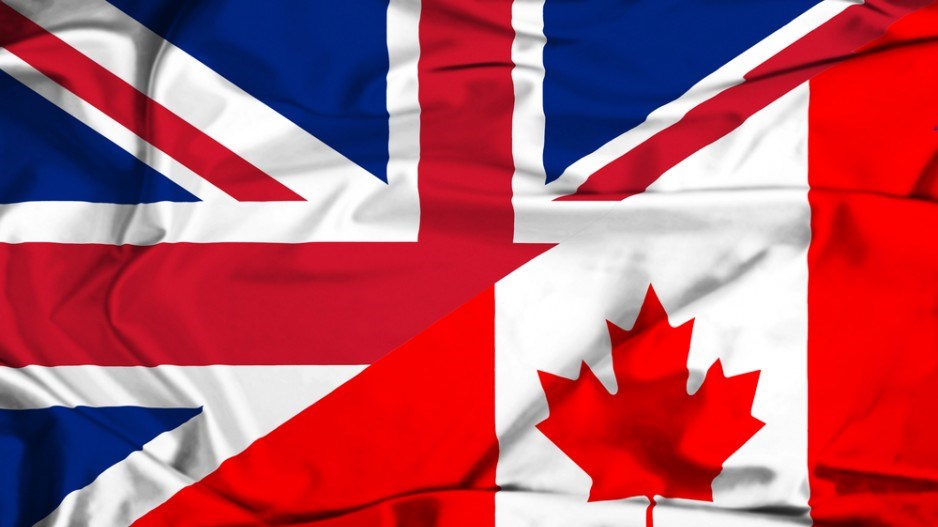Last month, before geopolitics were thrown a severe curveball by the actions of the United States inside Iraq, Research Co. asked Canadians about their views on different countries.
The exercise was meant to review the sentiment of the public on traditional friends and allies, as well as gauge perceptions on countries that have long been deemed a threat to global stability.
We should start with the country that, out of the 15 that were included in the survey, garnered the highest rating. More than four in five Canadians (83%) have a positive opinion of the United Kingdom.
Only 9% of Canadians have a negative view of the United Kingdom – a proportion that surprisingly rises among two distinct groups: Canadians aged 18 to 34 (17%) and Conservative Party voters in 2019 (12%).
In any case, these are extraordinary numbers. When Research Co. asked about issues related to the Monarchy and the Royal Family in February 2019, three people garnered the highest proportion of favourable opinions: Queen Elizabeth II (71%), Prince William (also 71%) and Prince Harry (70%). So, the United Kingdom outranks the Queen and her two grandchildren, mostly because some Quebecers like the country but are not as enthused about the monarchy.
The numbers are remarkably similar for other countries that, along with Canada, are assembled in the G7. Germany elicits positive views from 73% of Canadians. Italy and Japan are next with 72% each, and France stands just behind at 70%.
The situation shifts when Canadians are asked about their assessment of the United States. Almost half of respondents (47%) have a positive opinion of our southern neighbour, and practically the same proportion (48%) hold a negative one.
There is a pronounced gender gap when Canadians are asked about the United States. Among men, positive views barely outnumber negative ones (50% to 46%). A majority of women (52%) have a negative opinion, while just over two in five (42%) have a positive one.
Canadians aged 18 to 34 are more likely to have a favourable view of the United States as a country (53%) than their counterparts aged 35 to 54 (42%) and aged 55 and over (45%).
On a regional basis, coastal residents appear to be more critical, with only 40% of Atlantic Canadians and 41% of British Columbians expressing a positive opinion of the United States. The numbers are higher in Quebec and Alberta (47% each), Ontario (49%) and Manitoba and Saskatchewan (50%).
When the assessment of Canadians is reviewed by political allegiance, the numbers are fairly close on almost every country. The U.S. is the exception. While almost two-thirds of Conservative voters (64%) have a positive opinion of the United States, the proportion falls to 42% among Liberal Party voters and to just 31% among New Democratic Party (NDP) voters. We will have to see if the numbers hold after this year’s presidential election.
India is also a polarizing choice, with just over a third of Canadians (36%) expressing a positive view, and almost half (48%) voicing a negative one. Positive opinions on India are at their highest in Atlantic Canada (44%) and at their lowest in Ontario (31%).
Canada’s other North American free-trade partner, Mexico, is also a divisive option, with 46% of Canadians expressing a positive opinion and 42% voicing a negative one. British Columbia has the highest proportion of positive responses for Mexico (57%), while Ontario has the lowest (38%).
Another Latin American country that has been in the news recently does not fare that well. Only 30% of Canadians have a positive view of Venezuela, while almost half (48%) have a negative one. Middle Eastern countries are near the bottom of the list, with fewer than one in five Canadians expressing a positive opinion of Saudi Arabia (17%) and Iran (14%).
North Korea holds the infamous distinction of being last, with only 11% of Canadians having a positive view and 75% holding a negative one – including 54% who say it is “very negative.” South Korea, in comparison, is regarded positively by a majority of Canadians (52%).
The perceptions of Canadians on two other key global players – China and Russia – are jarringly similar. Across the country, 62% of Canadians have a negative opinion of both, and fewer than three in 10 have positive views (27% for China and 26% for Russia). This is consistent with what Research Co. found in July 2019, when only 18% of Canadians expressed a desire to establish closer ties with China.
The current world view of Canadians can be defined like this: extremely fond of the United Kingdom, skeptical about the United States, respectful of the other G7 nations and reasonably wary of Russia and China.
Mario Canseco is president of Research Co.
Results are based on an online study conducted December 18–20, 2019, among 1,000 adults in Canada. The data has been statistically weighted according to Canadian census figures for age, gender and region in Canada. The margin of error, which measures sample variability, is plus or minus 3.1 percentage points, 19 times out of 20.




